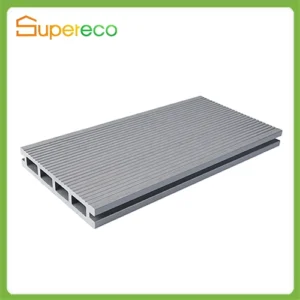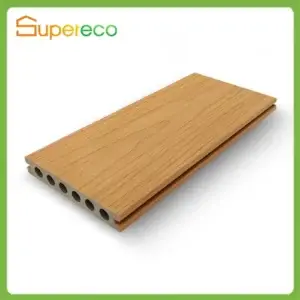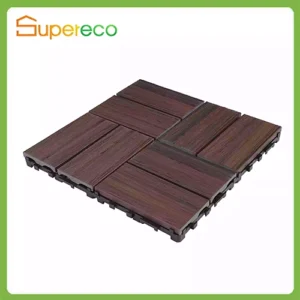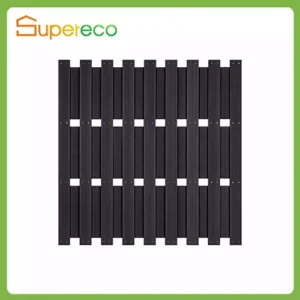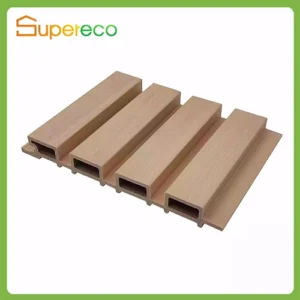1. Urban Infrastructure and Plazas
Urban areas are increasingly adopting WPC decking to enhance public spaces such as plazas, transportation hubs, and outdoor community areas.
Urban Plazas and Gathering Spaces: WPC decking can be used in the creation of urban plazas, providing a modern and sustainable option for seating and flooring in public areas. These spaces often serve as community hubs, and the durability of WPC decking ensures longevity in high-use areas.
Transportation Hubs and Stations: In transportation hubs like airports or bus stations, WPC decking is used for creating outdoor waiting areas, walkways, and seating zones. Its resistance to wear and tear from high foot traffic makes it ideal for such environments.
Rooftop Gardens and Terraces: With the increasing popularity of green roofs and rooftop gardens in urban developments, WPC decking is an excellent choice for creating stylish and low-maintenance outdoor spaces on top of office buildings, restaurants, and hotels.
2. Sustainable and Green Construction
WPC decking is widely regarded as an eco-friendly building material, aligning with the increasing demand for sustainable construction solutions.
Recycled Materials: WPC decking is made from a combination of recycled wood fibers and plastics, making it a more sustainable choice than traditional timber. This contributes to reducing deforestation and minimizing the carbon footprint of commercial construction projects.
Long-Term Durability and Reduced Waste: The long lifespan of WPC decking (25–30 years) means that it does not need to be replaced as often as other materials, reducing waste and promoting a more sustainable approach to construction.
Energy Efficiency in Urban Development: The use of WPC decking can contribute to the overall energy efficiency of commercial buildings by offering better insulation properties for outdoor spaces.
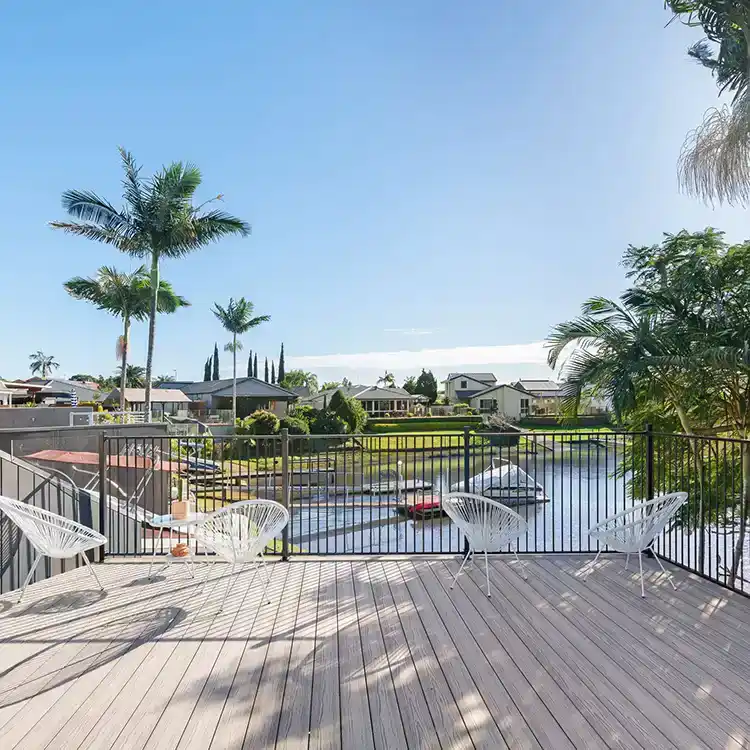
3. Durability and Low Maintenance
One of the biggest selling points for WPC decking in commercial applications is its low-maintenance nature.
Weather Resistance: WPC decking is resistant to UV rays, moisture, mold, and insects, which makes it ideal for outdoor spaces exposed to the elements. Unlike traditional wood, it does not need to be sealed, stained, or painted regularly.
Easy to Clean: WPC decking is easy to clean, requiring only periodic washing with soap and water to maintain its appearance. In high-traffic commercial settings, this is a significant advantage over other materials.
Long-Term Cost Savings: Although WPC decking can have a higher initial cost compared to traditional wood, its longevity and low maintenance requirements offer significant long-term cost savings for businesses, making it a cost-effective solution in the commercial sector.
4. Customization and Aesthetic Appeal
WPC decking can be customized in a variety of ways to suit the branding and style of commercial spaces.
Variety of Colors and Textures: Available in a range of colors and textures, WPC decking can match any design preference, whether a natural wood look or a more modern, sleek finish. This versatility allows businesses to use decking as an extension of their brand.
Integration with Landscaping and Lighting: WPC decking can be seamlessly integrated into landscaping projects, allowing for the addition of lighting, planters, or other decorative elements that enhance the outdoor experience.
Design Flexibility for Commercial Projects: Whether a retail store, office building, or hospitality venue, WPC decking offers design flexibility that can be tailored to meet the specific needs and aesthetic preferences of the business.
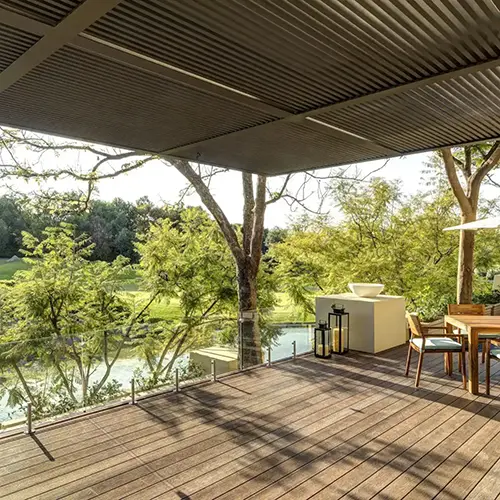
As businesses continue to focus on environmental sustainability, cost-effectiveness, and creating engaging outdoor spaces, WPC decking is poised to play an essential role in shaping the future of commercial landscapes.

